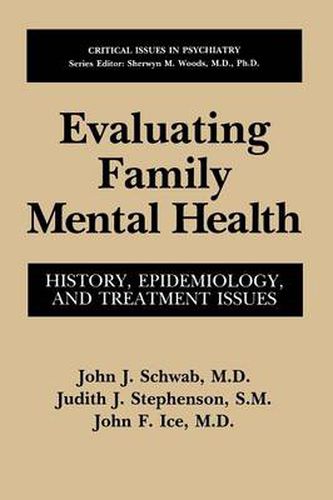Readings Newsletter
Become a Readings Member to make your shopping experience even easier.
Sign in or sign up for free!
You’re not far away from qualifying for FREE standard shipping within Australia
You’ve qualified for FREE standard shipping within Australia
The cart is loading…






This title is printed to order. This book may have been self-published. If so, we cannot guarantee the quality of the content. In the main most books will have gone through the editing process however some may not. We therefore suggest that you be aware of this before ordering this book. If in doubt check either the author or publisher’s details as we are unable to accept any returns unless they are faulty. Please contact us if you have any questions.
At the time of this writing, there is much uncertainty about the form of this country’s future healthcare system and the role of psychiatry and other mental health disciplines in that system. Current experience with various managed healthcare programs is not encouraging. Most often patients with severe psychiatrie disturbances receive, at best, so me form of crisis intervention or brief treatment. Marital and family approaches to treatment receive even less support. This discouraging socioeconomic context makes the work of John Schwab and his colleagues even more important than it would be in more favorable times. Their message is clear: The family is crucial to an understanding of psychiatrie disorders and must often be the major focus in the treatment of these disorders. This book is unique in its direct reflection of the senior author’s long-term professional interests-the family, epidemiology, and history. A careful reading provides family therapists and researchers with won derful opportunities to examine the ways in which history, socio economie and politieal contexts, and epidemiology can be used to in crease understanding of the family. This his tory of the family is unusually thorough; in particular, I found fascinating the information about early Egyptian families (3000 B.C.) and their accordance of high status of women.
$9.00 standard shipping within Australia
FREE standard shipping within Australia for orders over $100.00
Express & International shipping calculated at checkout
This title is printed to order. This book may have been self-published. If so, we cannot guarantee the quality of the content. In the main most books will have gone through the editing process however some may not. We therefore suggest that you be aware of this before ordering this book. If in doubt check either the author or publisher’s details as we are unable to accept any returns unless they are faulty. Please contact us if you have any questions.
At the time of this writing, there is much uncertainty about the form of this country’s future healthcare system and the role of psychiatry and other mental health disciplines in that system. Current experience with various managed healthcare programs is not encouraging. Most often patients with severe psychiatrie disturbances receive, at best, so me form of crisis intervention or brief treatment. Marital and family approaches to treatment receive even less support. This discouraging socioeconomic context makes the work of John Schwab and his colleagues even more important than it would be in more favorable times. Their message is clear: The family is crucial to an understanding of psychiatrie disorders and must often be the major focus in the treatment of these disorders. This book is unique in its direct reflection of the senior author’s long-term professional interests-the family, epidemiology, and history. A careful reading provides family therapists and researchers with won derful opportunities to examine the ways in which history, socio economie and politieal contexts, and epidemiology can be used to in crease understanding of the family. This his tory of the family is unusually thorough; in particular, I found fascinating the information about early Egyptian families (3000 B.C.) and their accordance of high status of women.